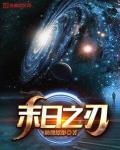Volume 3: Dance of the Aurora Chapter 21: Grandpa of Old Los Angeles
While the west coast of the Pacific Ocean was in chaos, the peaceful lives of people on the east coast of the Pacific Ocean were not affected for the time being.
After graduating with a Ph.D. from Caltech, Arnold never imagined that his job would be so... monotonous.
It was just monotonous, not boring. Every day's work was interesting and fulfilling for him, but it was all repetitive.
On a seemingly ordinary morning, he drove his electric car as usual, bought breakfast, left his apartment in Hanford, and drove on State Highway 240, which was the only way to go to work in the laboratory every day.
The maximum speed limit on this road is 60 miles per hour, or 96 kilometers per hour, but he usually drives at over 100 miles per hour. After all, there is basically no one on the road. Except for people who drive to work at some large scientific facility for commuting, no one would drive around in this wilderness.
Besides, there were no police in this damn place, let alone surveillance , so everyone was speeding.
The sky is clear on the west coast in May. Although it is early summer, the middle section of the Rocky Mountains blocks the moist water vapor from the Pacific Ocean. Therefore, no green grass sprouts on this vast plain only 300 kilometers away from the sea. When viewed from the air, the entire view is still filled with rich dark brown.
Arnold has adapted to this dry wasteland. After all, the Mediterranean climate in Southern California is similar to here in the summer. The only thing that makes him uncomfortable is that there is no in-n-out (a fast food chain specialty of California) here. If he wants to eat hamburgers and fries, he can only go to the McDonald's or Burger King.
Hey, our old man from Los Angeles, this is what happens when we wake up in the morning, and what we pay attention to is an authentic one.
But there is Mexican food here, so it's okay. Thinking of this, he took a bite of the Burrito in his hand. This kind of Mexican burrito is rolled with rice, a real carbohydrate bomb.
It was really cool to be able to drive in the desert every day. Thinking of this, he recalled the so-called highways in Los Angeles that were often jammed for dozens of kilometers and could not be driven at all. He stepped on the accelerator again, or strictly speaking, the electric switch.
Eating while driving and exceeding the speed limit is a typical dangerous driving. If you are caught, your driver's license may be revoked or you may be put in jail for a few days. But there is no one in the Gobi Desert anyway, so just drive freely.
What's more, he has driven this broken road countless times since he started working here, and he can find his destination with his eyes closed.
His destination was two long white cylinders that were out of place in this monotonous wasteland. They intersected to form a huge right angle, just like a coordinate system that appeared out of thin air on the earth, strictly dividing the field of vision into four parts, and the vertex of the right angle where the two coordinate axes intersected was the location of the laboratory.
The name of this strange-looking large building is Laser Interferometer Gravitational-Wave Observatory (LIGO).
This laboratory and another gravitational wave observatory built near became world-famous a few years ago for their official discovery of gravitational waves. Of course, the credit does not belong entirely to them. In addition to scientists in local laboratories, a large number of institutions around the world are involved in related research.
However, it is understandable that the Nobel Prize was only awarded to a few scientists who designed and built the LIGO laboratory.
As usual, Arnold parked his car in his own parking space to charge it. After finishing the burrito in two bites, he swiped the access card and walked into one of the row of buildings that stood abruptly on the empty horizon, ready to start a day's work.
He walked into the office, a small but tidy room. The wall was densely covered with a row of display screens that recorded the status of various parts of this large scientific device in real time. In front of the room was a huge projection screen, showing the core of the entire laboratory: the laser interferometer.
In layman's terms, gravitational waves are ripples in space itself. Any object with mass, regardless of size, will create ripples in space-time when it moves at an accelerated rate, and propagate outward from where it is generated.
It’s just that the mass of the macroscopic objects we come into contact with in our daily lives is too small, and the acceleration they produce is not enough, so it is difficult to feel its existence in life.
The gravitational waves first observed in 2015 were generated by the merger of two neutron stars, while the gravitational waves observed in 2017, which won the Nobel Prize, came from the merger of black holes. Both neutron stars and black holes are celestial bodies with huge mass, so the gravitational fluctuations they produce can penetrate the vast space and bring extremely subtle disturbances to this blue planet in the corner of the universe.
Of course, another possibility is that the space itself has undergone drastic distortion, but this assumption is a bit unscientific.
Arnold checked the data from this morning. Just like yesterday, there was nothing noteworthy. The universe was peaceful, and no new black holes or neutron stars died.
Sometimes he also feels a little regretful. As a person who has received 12 years of elite education in private schools since elementary school, he could have gone to Wall Street to make a lot of money; at least he could have been a lawyer or doctor and lived a life that others could not envy. In fact, his father was a doctor and he hoped that he would follow in his father's footsteps.
If he had not been fascinated by the "high-end" of science, he would definitely not have chosen the path of scientific research. In middle school, he was still naive and was deeply attracted by various scientific terms that sounded very cool, and resolutely chose this single-plank bridge.
Later, even though he learned something about real scientific research and realized that the actual work was not that glamorous, he still did not change direction. After all, once the seeds in the young mind sprout, it can easily become a lifelong ideal.
Pulsars! Binary black holes! Gravitational collapse! Gamma-ray bursts! The Big Bang! How cool it sounds!
To put it bluntly, the work of studying them is just staring at the computer screen and looking at data every day.
At this time, a young Chinese doctoral student flashed out from behind the laboratory door. He was tall and thin, with curly hair. He was wearing a slightly loose sweatshirt and sweatpants, and walked into the room with a serious face.
"Hey, Yi! How are you doing..."
He was halfway through his words when he noticed the gloomy expression on the other person's face and immediately put away his smile..
"I...maybe I'm going back home. Have you heard about what happened last night?"
"Oh... that disaster, huh? I'm so sorry..."
"This incident has caused a lot of suspicion... Some people suspect that this is a precursor to war or some kind of provocation. Now that international relations are tense, I am no longer suitable to stay here."
This suspicion will soon disappear because the protozoa will soon arrive in the New World, but no one knows it now.
Arnold cooperated and made a painful expression. In fact, he was really worried about the current situation. His intuition told him that danger seemed not far away from him.
They chatted briefly for a few more words before parting ways. Arnold went to the lounge to get a cup of coffee, and after calming down, he began to check the data from last night..
Well, everything looks normal, there doesn't seem to be anything special to worry about...
The next moment the overflowing coffee cup slipped from his hands, and the steaming liquid spilled all over his pants.
The largest gravitational wave packets ever seen appeared on the computer screen, at least an order of magnitude larger than anything seen before.






